


2023-12-18
technical background
Underfill, also called underfill, has the functions of reducing the stress impact caused by the difference in thermal expansion coefficient between the chip and the substrate, improving the reliability of the component structural strength, and enhancing the drop resistance between the chip and PCBA. It is mainly used in the PCB board-level packaging process of terminal products such as mobile phones, computers, and tablets. It is a key packaging material to improve the reliability of electronic products. The underfill rubber market basically relies on imports, and there is currently a large gap in the country.
Performance requirements
Low viscosity, good fluidity, high filling efficiency
Low CTE, high Tg, low modulus, high reliability
Reworkable and easy to clean
Underfill technology process:
Use capillary action to quickly flow the adhesive through the bottom of the BGA chip Bottom of the chip
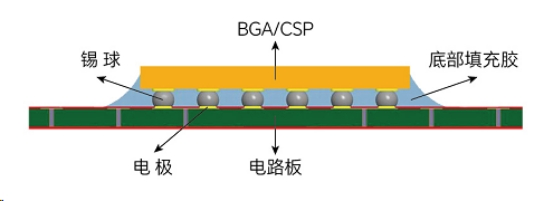
Dispensing method: "1" type or "L" type
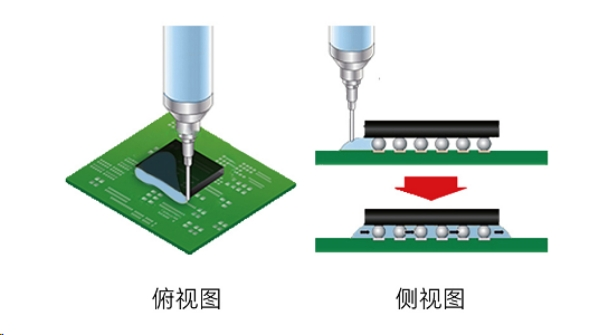
Focus on performance: liquidity
The performance of underfill glue products directly affects the yield of integrated circuit board-level chip packaging, so the early operations must be filled in place perfectly. To ensure rapid and complete filling, the adhesive must have low viscosity and fast flow, which is also the first consideration when choosing a bottom adhesive.
Youxingsha—Board-level underfill glue SHARK 1162 for the electronics industry
Working on "core" technology, efficient and stable
SHARK 1162 is a board-level underfill adhesive for the electronics industry launched by Youxingshark. It is a one-component heat-cured epoxy adhesive. It is a low-halogen environmentally friendly product. It has good fluidity at room temperature and can be cured at medium temperatures. It has Excellent electrical properties, excellent performance in actual industrial applications.
Features
Low viscosity, good flow properties, low CTE, high Tg, low modulus
Technical Parameters
Characteristics before curing
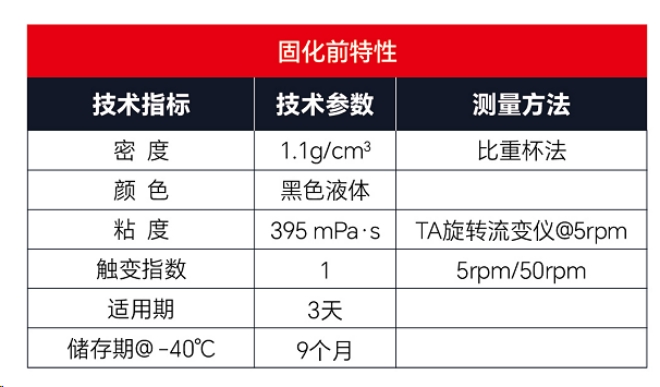
Typical Cure Properties
Recommended curing conditions: 10 min @ 130°C (can be adjusted appropriately according to customer curing equipment and oven temperature)
Curing thermal weight loss: < 1%
Cured properties
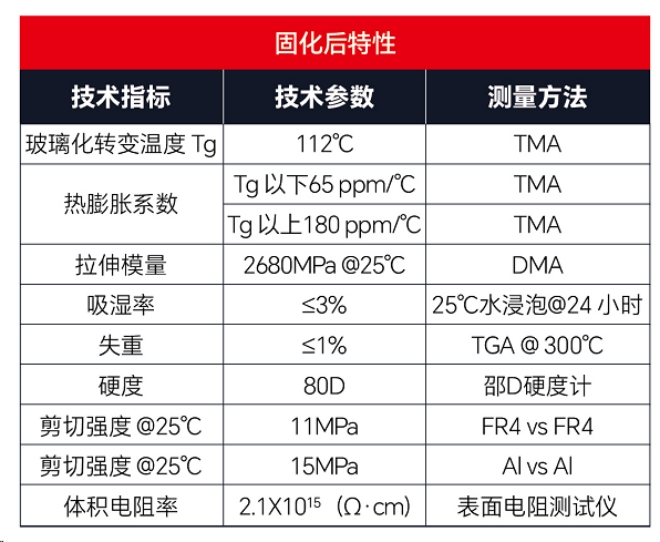
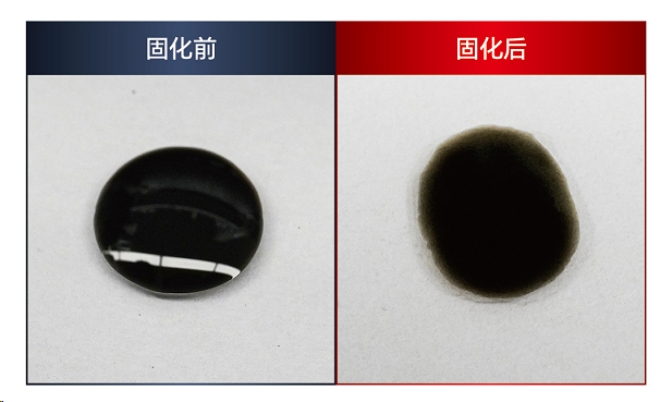
Product performance evaluation (1): Liquid rheological properties
01 TA rotational rheometer experiment
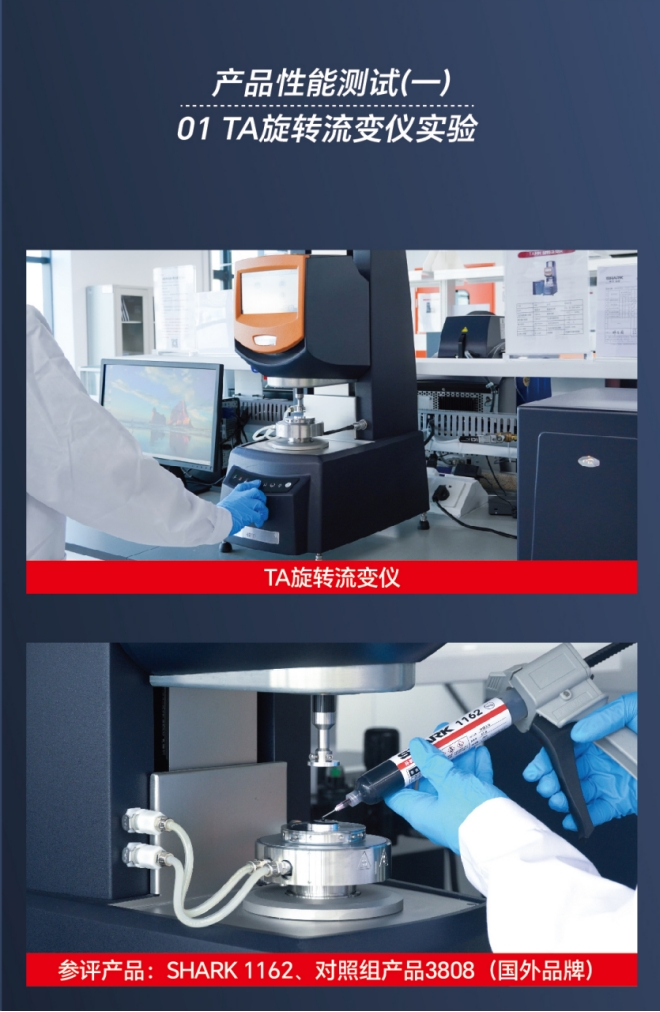

Experimental results
The rheological curves of SHARK-1162 and the control product 3808 (foreign brand) basically overlap, and the viscosities are both ≤500mPa·s.
02 Actual measurement of dispensing application
Compare the fluidity through the time it takes for the two adhesives to flow through the gauge lengths of 10mm and 15mm.
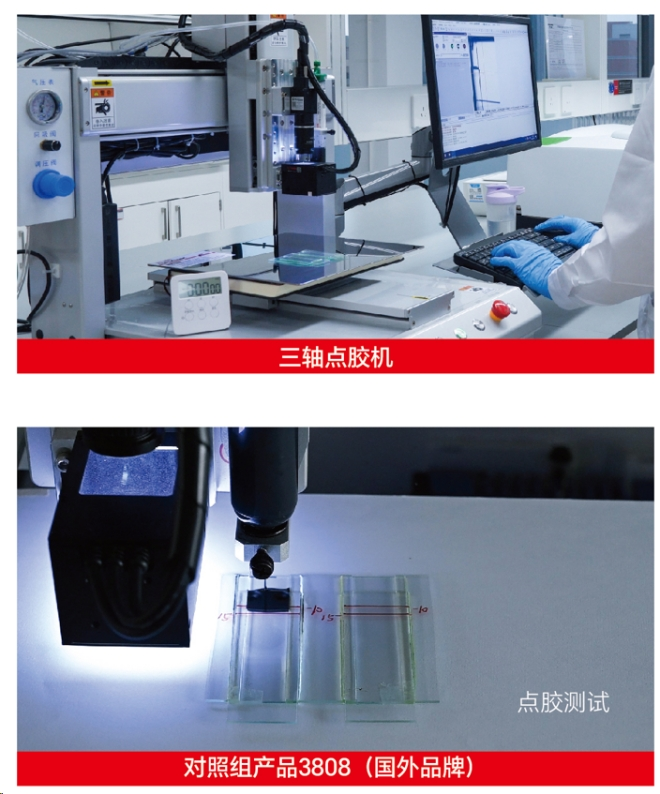
Experimental results

After standing for 5 minutes, the flow patterns of the two adhesives were similar.
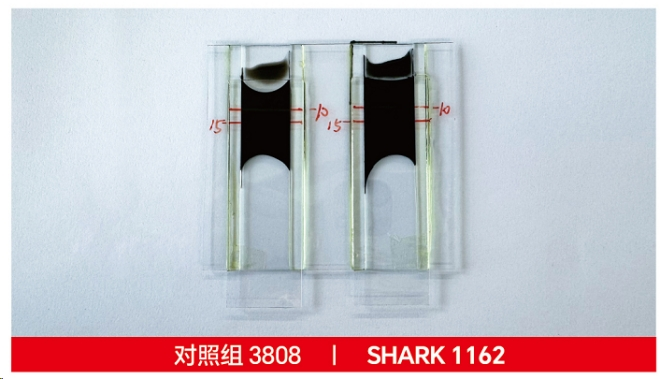
Summarize
The viscosity and fluidity of SHARK-1162 are comparable to foreign products, showing excellent fluidity and filling effects.